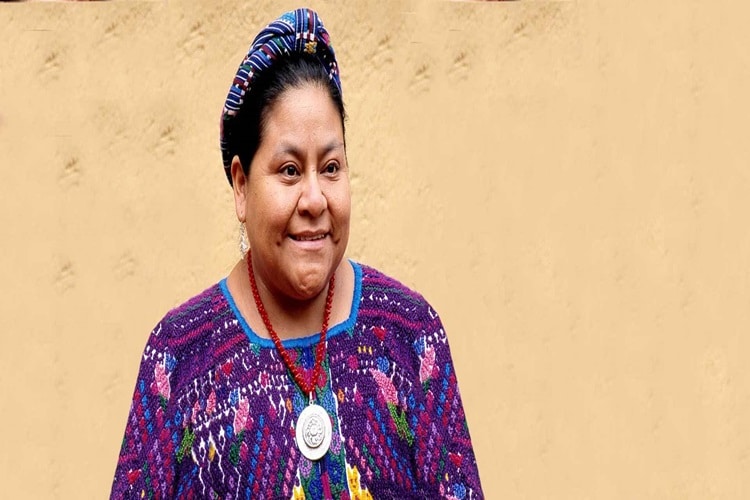Celebrating life and legacy of Rigoberta Menchu

Rigoberta Menchu is a K’iche’ Maya woman from Guatemala who gained international prominence for her activism on behalf of indigenous peoples and human rights.
Life and Career
Rigoberta Menchu was born on 9 January 1959 in Laj Chimel, Guatemala.
Her early years were marked by the poverty and discrimination faced by Guatemala’s indigenous population. She grew up in a traditional Mayan community, where her family worked as subsistence farmers. Menchú’s early education was limited, and she did not attend formal schooling until later in life. Her family was deeply affected by the oppressive policies of the Guatemalan government, which often marginalized and exploited indigenous communities.
Menchú became involved in social and political activism at a young age. She witnessed the exploitation and oppression of indigenous people, particularly during the Guatemalan Civil War (1960-1996), a conflict characterized by human rights abuses and violence against indigenous communities. Menchú’s family became directly affected by the conflict when her brother was arrested, tortured, and killed by the military.
Rigoberta Menchú became a prominent advocate for indigenous rights and social justice. She was involved in organizing protests and advocating for the rights of indigenous people in Guatemala. Menchú’s activism drew attention not only to the plight of her people but also to the broader issues of human rights violations in Guatemala.
In 1983, she published her autobiography, titled “I, Rigoberta Menchú,” which was co-written with Venezuelan author and anthropologist Elizabeth Burgos-Debray. The book provides a detailed account of Menchú’s life, her experiences of oppression, and her commitment to social justice. It became an international bestseller and won the Nobel Peace Prize for Literature in 1992.
Rigoberta Menchú continued her advocacy on the global stage, working with various organizations and speaking out against human rights abuses. She became a symbol of indigenous resistance and a voice for the marginalized.
Award and Legacy
Rigoberta Menchú was awarded the Nobel Peace Prize for Literature in recognition of her autobiography, “I, Rigoberta Menchú,” which provided a powerful account of the struggles faced by indigenous people in Guatemala. This award brought international attention to her and the issues she championed.
Menchú’s work has significantly contributed to raising awareness about the rights and struggles of indigenous peoples, not only in Guatemala but globally. Her advocacy has inspired and empowered indigenous communities to assert their rights and preserve their cultural heritage.
The international recognition she gained through the Nobel Peace Prize and other awards has allowed Menchú to amplify her message on the global stage. Her efforts have contributed to a broader understanding of human rights issues, particularly those faced by indigenous populations.
Menchú’s life and activism have inspired countless individuals and organizations dedicated to human rights and social justice. Her story serves as a reminder of the importance of speaking out against injustice and advocating for the rights of the oppressed.
Observer Voice is the one stop site for National, International news, Sports, Editor’s Choice, Art/culture contents, Quotes and much more. We also cover historical contents. Historical contents includes World History, Indian History, and what happened today. The website also covers Entertainment across the India and World.

